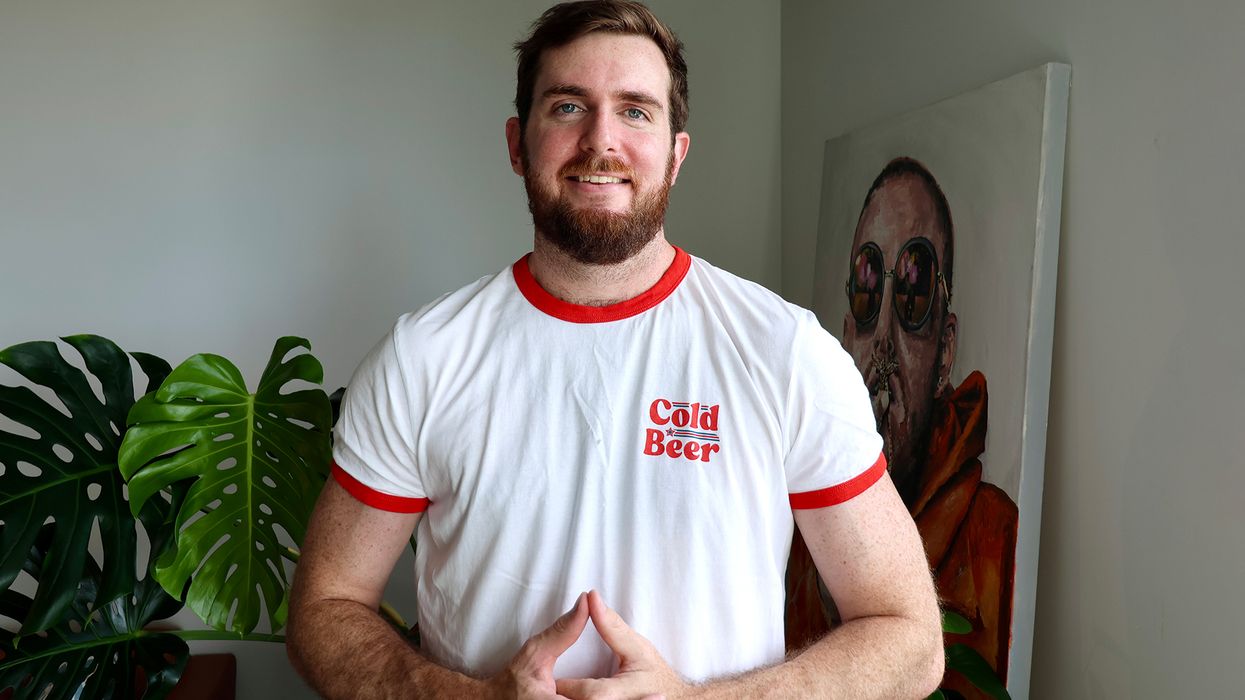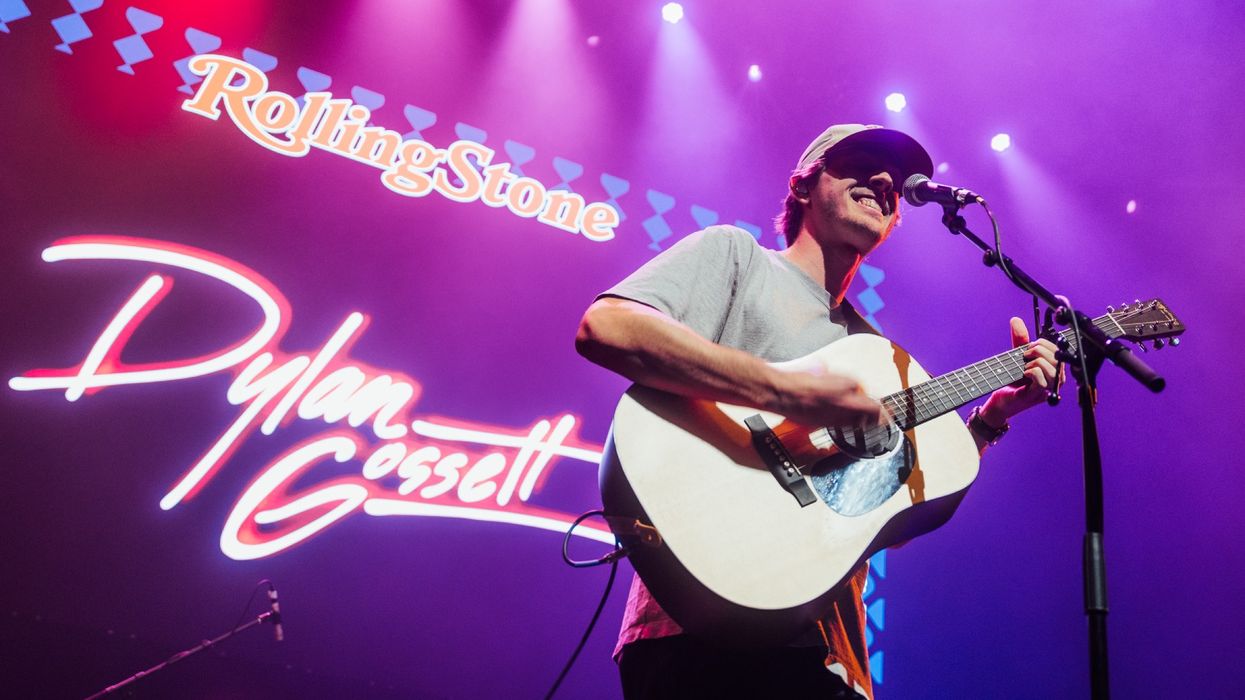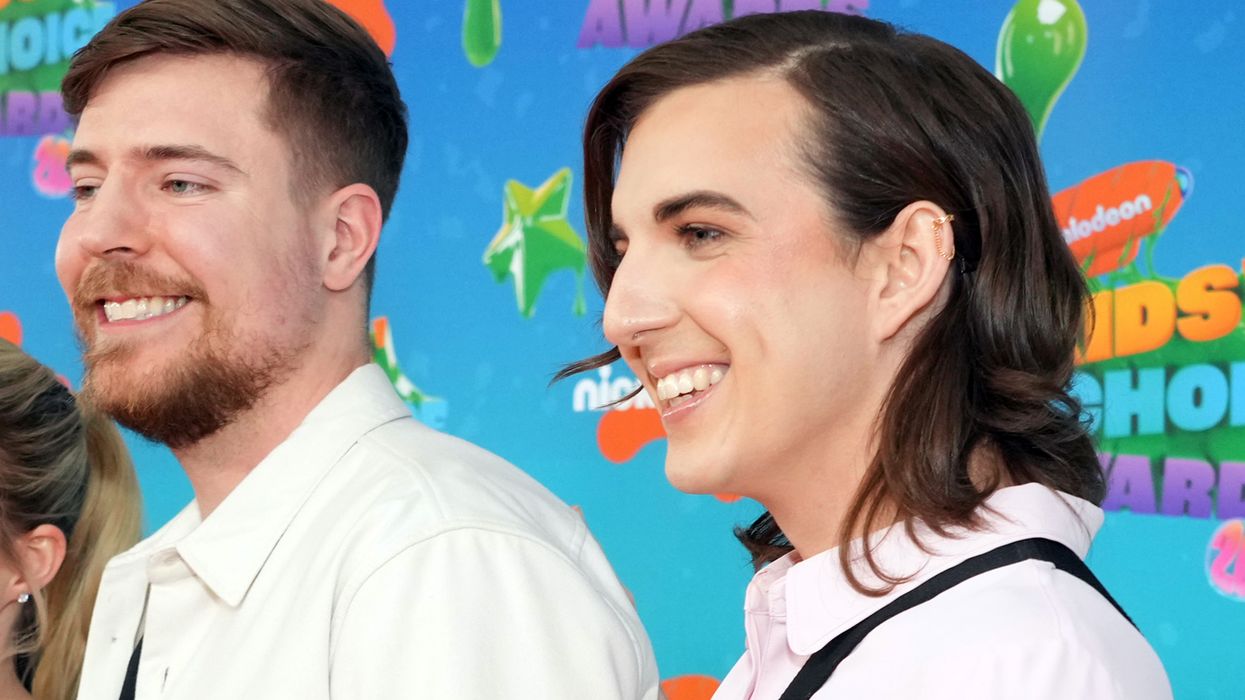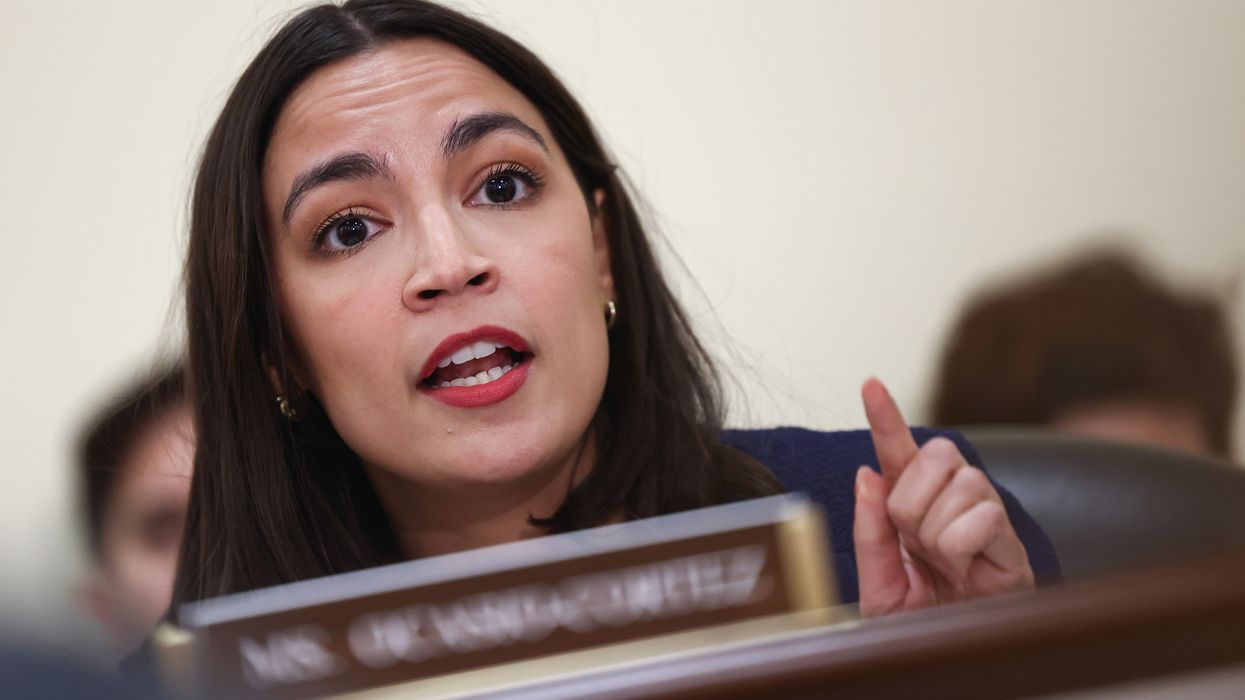Thursday, Aug. 8, marked nine years since the untimely passing of Sean Price, a one-of-one MC whose presence still looms large in the rap landscape. Few artists possessed his combo of technical precision, unbridled aggression, and side-splitting humor displayed on projects like his Heltah Skeltah work, alongside Rockness Monstah, and solo classics Monkey Barz, Jesus Price Supastar, and Mic Tyson. Chicago rapper Vic Spencer became a friend of the cult-hero MC in his later years, and decided to pay homage with The Apes That Was Left Behind, a project released on Duck Down Records (which Spencer calls “Ruck Down” in honor of Price’s original name, Ruck).
While sitting at his Chicago home, Spencer tells me the album was ideated four years ago and took about a year to complete. The project features a slew of Price’s friends and collaborators such as Method Man, Sadat X, Oh No, Rome Streetz, and Rockness Monstah. The production credits are also hefty, which are a testament to how beloved Price is. Spencer says the contributors were happy to work on an album of which all proceeds will go to Price’s family.
He had Price’s widow, Bernadette Price, set the project off on the album intro, “Blood Sofa,” which he says “solidified everything.” And on tracks like “Otto From The Simpsons,” “Bodybag Registry,” and “Buktoof” Spencer’s gruff lyrics feel right in the spirit of Price, whose “Distorted Views” track with Spencer and DJ Anthony Mace served as the thematic basis of the project.
Spencer reveals that he wanted to make the tribute project feel more celebratory than melancholic. “I was studying [how] not to make ‘We all miss you Sean Price’ records, because that ain’t what he would’ve wanted,” he says. “He would’ve wanted me to go do exactly what I did, go get the apes and body records. I was glad I was able to embody that more than the sadness of it. On the inside, [his loss] kills me, but lyrically, that’s not what he wanted. It’s not no ‘We’re going to miss you forever, Sean Price.” Nah, [it’s] ‘I’m a Sean Price representative, and I’m going to punch you in the face too.” The Apes That Was Left Behind was paired with a MARSZ Flight-crafted documentary about its creation.
Spencer talked to Rolling Stone about his friendship with Price, crafting the album, and Price’s influence on him and rap.
What was your relationship with Sean Price like?
We was like brothers, bro. We’d talk almost every day on the phone. He had a landline phone and we would talk between the hours of 9 to 5. That’s how it used to be [laughs]. I would call him or he’d call me, and we’d write raps on the phone together. We talk about beats together, we talk about family together. We crack mad jokes. Man, I heard tons of stories … we had a real brotherly bond, for sure, for five years before he passed.
What was that like rapping on the phone together?
It was dope, man, because Sean Price was super inspired by me. He would tell me that all the time. He would always send me beats that he wanted to rap over. And he’s like, “I just want to hear you rap over it. I ain’t going to even feature you on the song because that shit inspire me.” I would go and write raps to it, and then I would send it to him. He’s like, “Yeah, now I’m ready to rap over it.” That’s how [much] I inspired him. He was a real huge fan. So that process, to be able to be in that pocket with him was just dope in itself. Not only did he believe in me, he was super inspired by me. One of my top five rappers, dead or alive, being inspired by me, I took that very serious.
I noticed on your Bandcamp you reference that part of your music experience is “the wit of Sean Price.” How influenced were you by his work?
It started with Nocturnal. He always went by Ruck. From ’95, ’96, I’ve been listening to Sean Price, and then, maybe, I think I started getting cool with him in like 2012, 2013. So that was a long time before he got to my music, but I was glad that I stuck with it, because I was just starting to write and rap at the time that I heard Sean Price. He’s definitely, when I was up-and-coming, one of my biggest inspirations that made me want to pick up a pen. Him alongside Redman.
It’s been Sean Price cadence ever since. I studied his rhyme patterns. I studied how he say shit. I liked how he had run-on sentences. He’ll make one sentence two sentences and make two bars. He cheats the game, but he is also funny. He’ll say some funny shit while he do that. So it’s like a double entendre, triple entendre in the simplest way. Sean Price said, “I would wild on every nigga cross-dressing, the essence of Tyler Perry.” That’s one [sentence but] it sounds like two sentences. Nobody’s able to calculate like that. Nobody’s creating poetry or art in that form. When you really listen to Sean Price, you’ll get that kind of impact from him.
Many people feel like he’s a godfather of the modern indie-rap scene. I was wondering if you could speak to how he was able to cement himself as a distinct character in the landscape?
I feel like the mixtape scene was real heavy when Sean Price was doing what he was doing as a solo artist. [It] gave him a real platform to capitalize on what we as underground artists is doing right now. He was taking advantage of that. While everybody was doing Gangsta Grillz, he was linking up with PF Cuttin, and they was cooking up mixtapes over other people’s beats.… I feel like that’s what pushed the envelope for a lot of artists. Then when the albums come out, it’s just as spectacular, as funny. I always went to Sean Price for funny bars. He was always a guy that looked like he’ll punch you in the face real quick, already got those vibes. To add to that, it’s just like, you could tell he was having fun with his life. Some of these guys that’s out right now, they’re not going to say things like Sean Price did. They’re just going to be all gats and packs and coke.
I feel like Sean Price was one of those guys, you know what I’m saying, in the underground that kind of pushed that envelope forward. Sean Price was never a conceptual rapper. His artwork might’ve been conceptual with the apes and stuff like that, but he was never a conceptual rapper, and that also weaned me into it. I just feel strongly about, if Sean Price was here, man, it wouldn’t be a lot of rappers in the underground swamp, man. Sean Price was shitting on the industry. When he started buzzing, he was rapping about everybody. Wale, Lupe, everybody, he was bodying their ass.
When did y’all record “Distorted Views?”
A little bit over 10 years ago, we recorded that joint. When I went to New York, I recorded two joints with Sean Price in the studio. We recorded a total of five joints. The first joint that we recorded together, not in the physical, but the first joint we recorded together was ‘Lord Have Mercy,” which was actually the last track that we had together before my album dropped. That was the first joint that we recorded together.

Sean Price also did something for an upcoming album of mine that’s not out yet right before he passed. Sean Price passed on a Saturday morning. I talked to Sean Price the Wednesday night before. He was in the studio with PF Cuttin. I know when he’s in the studio with PF Cuttin because he answers [his cell] phone. He never had a cellphone until right before he passed.
What?
Never had a cellphone. And he called me on the cellphone. I still got the cellphone number saved as Sean Price. He’s like, “Yo, son.” He started rapping out of nowhere. Nine times out of 10, if Sean Price is in the studio and he wants to talk to whoever he’s calling, he starts off the conversation with raps that he just did. So he’s doing the a cappella. I’m like, “Man, this shit is hard.” Then he asked PF Cuttin to play the joint. It’s a joint that’s mine, [he] said that he’s featuring on [it]. I’m like, “Oh, shit, that’s my shit.” Then he sent it right over. That was the last time that I spoke to Sean Price. That song is not out yet.
When did you come up with the idea of centering an album around “Distorted Views?”
About four years ago. I was like, man, I never dropped nothing over there with Ruck Down [Duckdown Records], and I felt like I was obligated to. I had that song, so I was like “I’m just fixing to build from that moment on until I complete it.” I already had the mindset of giving the album to Bernadette so she could have all the proceeds, for sure. That was always something in the back of my mind.
Once I came up with that, I just started working on it slowly but surely, making sure I had the right features. That’s why Rim is on the album cover, because Rim was my advocate for making sure that I got all of the guys that Sean Price was close to on the album. I would always send Rim joints after I’m done, like, “Man, you’ve got to make sure you get whatchamacallit on here.” Everybody that’s on the album was opening arms. Everybody understood the assignment, and they were like, “Man, Vic, we’re glad that you’re doing stuff like this to keep his legacy alive.”
When I reached out, it made it a lot easier for people to navigate and be open arms to the project. It’s like, “Yeah, man, Vic Spencer. I remember. Sean Price rocked with you tough.” I only met Rockness Monsta one time, and we only had a few conversations after Sean Price’s passing. But when I reached out to him for this album, he was open arms because I feel like Sean Price was one of my biggest advocates. He was always telling people, “Vic Spencer’s the nicest,” and was vocal about that everywhere.
How did you go about deciding the parameters of making sure it’s something that he would be proud of?
My process has always been the same. My process is just having the beats first, and this project no different. I waited until I got all of the beats that I wanted to rap over. And once I did my part, I was like, “Hmm, maybe somebody else wants to go on here.” Having all the beats gave me room to have ideas as I’m sending tracks out and getting stuff done. Having all the beats and having all my vocals done is what made this album come together. Guys was already listening to my verse when they was crafting their verses, and it made it a lot easier to mesh in with me because I did all my parts. That’s how I normally work. I do all my parts and then postproduction is probably the longest stretch of time that I spend on the album.
I’ll record an album in a month and a half, but then I’ll take another six months behind postproduction. I just wanted to make sure that I had all the guys that Sean Price left behind to carry his torch. That’s why the album’s called The Apes That Was Left Behind. We all came collectively and wanted to make the album sound like we punched a school bus. It reminded us of roofing vehicles. That’s what Sean Price’s music did. I feel like this album is what it’s supposed to be if Sean Price was alive. I feel like he would be very proud of this record and probably been on five, six songs, trying to hog up all the raw beats and shit.
There are a lot of producers on this project. Did you have a prior relationship with them? How did you go about rounding up all of these beats?
It was once upon a time where I was just working with guys that did wonderful beats and didn’t have a name, I was specializing in that. I’d reach out to [them], or people reach out to me. I open my email, I open my DMs up for guys. I get around my guys, and we’ll sit down and listen to beats like we listen to albums. Even if it’s a beat that I don’t pick, I’ll sit and listen to it, because I’m that invested in producers’ time in creating a beat. It was their job.
What songs do you think Sean Price would have wanted to get on the most from the project?
Track seven, for sure, “Bodybag Registry,” with Oh No. “Otto From The Simpsons.” He’d have got on the first song, ‘Blood Sofa.” He’d have got on “Fittsburgh.” He’d have got on the third beat, “Crawfish Stew.” He’d have got on a lot of those joints. I picked them because I had Sean Price in mind. A lot of those beats sound like hard-hitting East Coast hip-hop, and that was done purposely, because I grew up off that kind of music. Also, that was a signature move with Sean Price. So there’s a lot of joints on there Sean Price would body. He would body the “Ear Wax” joint at the end. He would body the “Buktoof” joint at the end. There’s a good 10 of them on there.
What did Bernadette Price say after she got to listen to the project?
She texts me every day how good the album is. She just text me yesterday, like, “Bro, the album’s so cold. Thank you. Thank you for representing you. You really represented. You really snapped on this album.” And just to get that nod, that’s all that matters to me, man, for real. To get the nod from his family is everything. I’m thankful. If she loves it, then I don’t need no more validations.
So this project was released on Ruck Down. Are you planning to release any more projects with them, or just this one for now?
Yeah, just this one for now. I don’t want to force it. Whenever I feel something on my heart, that’s when I do it. I made it public that I was going to give all the proceeds to Sean Price, and that was before the album was done. I wanted it to just be like that. I want to be able to just be natural and free about it. We didn’t have no contracts signed or nothing like that. So it’s just all natural love. If I do a project over there, it’s going to be with that same kind of energy just because I want to, or I feel obligated to make that album.
What else are you working on?
I got an album that I’m working on that might drop, called Being the Bigger Person Sucks. That’s another album that got multiple producers on it. Also, I’m working on Psychological Cheat Sheet part five, and that’s produced entirely by August Fanon. Both of those albums are done. It’s like a tug of war of which is going to come out first, but those are the next two albums up to bat that’s going to drop this year, for sure.
Albums of the Moment: Three recent records you should listen to
BVNGS, Mary Mack
The phrase “New York rap” is no longer solely about the Big Apple. Upstate New York has become a hotbed for talent, with artists like Griselda, 38 Spech, Che Noir, and many others holding it down for the region. Rochester-born rapper BVNGS is staking her claim within that talented movement on Mary Mack, a colorful album where she depicts herself as the stickup chick you love to hate.

Album intro “Channel 7” steeps the listener in the Bangz experience, with a faux news story about a string of robberies in the Rochester area. It’s pretty funny to hear an interviewee give up the name of a suspect “on-air,” but it fits her bid for infamy. On the next track, “91 Varsity,” she gets busy over trap drums, introducing herself as an MC with a compelling high-pitched voice, impressive technical lyricism, and a sense of humor that all congeals to fixate you on what she’s about to say next.
One could easily hear her skills and ear for beats being used for songs about how much she loves rap or how superior she is as a rapper, but she shows instead of tells with her storytelling ability. She gets off on a variety of beats, from the soulful “Stick Up” and the angelic “Saw” to the dusty, warped composition on “Jester,” where she tells the story of romance turned to robbery with hilarious bars like “I hope she don’t see my post; her stolen TVs and rice.” On “Stick Up” she threatens “Keep flashin’ them blue faces, gonna be Rock-less Chrisean.”
BVNGS’ mesh of gruff imagery and humor puts her in the lineage of street comedians like Cam’ron, Ghostface Killah, as well as Biggie, whose “Gimme the Loot” inspired the single “Mary Mack.” Where Biggie takes the listener on a ride with him and a friend that ends in a shootout, BVNGS pitches her voice higher and lower to rap from the perspective of two people evading her, making her seem like the boogeyman in the shadows.
But it’s not all menace; she shows off another side on “Nights Like This,” where she laments a lost love (and threatens to shoot her more than once). And “God Saves” feels like the unmasking at the end of Scooby Doo, where she reflects on the consequences of lost loved ones, rhyming “If God take one of my niggas again, I swear, I might not make it there.” The track shows off her ability to be compellingly vulnerable and demonstrates the trauma that leads to “senseless violence” without feeling like an after-school special. Overall, Mary Mack is a svelte offering from someone poised to be a distinct character in the rap landscape.
DJ Muggs and Raz Fresco, The Eternal Now
Someone tell Drake and Kendrick Lamar stans that U.S.-Canada relations are just fine. Take the chemistry between Toronto rapper Raz Fresco and legendary L.A.-based producer DJ Muggs, for example. The two artists came together for The Eternal Now, the latest offering from Fresco, an indie veteran who’s in a bit of a rap rebirth as a Nation of God’s and Earths and inspired spitter with plenty of bars, but also a good amount of commentary on what he deemed a “post-apocalyptic non-nuclear family wasteland” on “World Peace.”

The jazzy track, where he also surmises “The chance of us risin’ is zero when divided” and “You know the game plan, install the leader then take land,” is the essence of The Eternal Now experience. The 15-track album is chock full of Fresco’s sociopolitical musings over a soundbed of warm samples and traditionalist drum loops. Muggs, the Cypress Hills stalwart who seemingly crafts classic collab albums in his sleep, gave Fresco a varied canvas for his glimpses of street knowledge.
There are several tracks forged on jazzy keys that harken to New York’s golden era: the eponymous album intro, “World Peace,” and “Look What You Made Me Do” (paired with a soulful vocal sample). Muggs also dug through the crates for some arresting saxophone play on “Blood Money” and “Spooky.” These beats offer Fresco a laid-back canvas for his pen to be the main source of urgency on the project.
Elsewhere, Muggs offers a slight twist to Nas’ classic “New York State of Mind” on “Staircase Stories,” where Fresco riffs off the Illmatic classic with a narrative of his own. The Eternal Now is undeniably steeped in the lineage of New York spitters like Nas, Cormega, and Tragedy Khadafi; it makes sense for him to outright reference one of them on the project. Fresco sounds at the peak of his craft as a spitter, dropping food for thought like, “Who benefit the most when we promote thuggin’/Who own the label and the jail? They both cousins.” He’s keen on riffing off into assonant rhyme schemes, but expertly, Fresco shows a good grasp of not letting his knack for intricacy complicate his message; a key tenet of having something substantive to say is expressing it clearly.
Aside from a few condemnatory bars such as “Used to paint the walls, now it’s they fingernails” on “Fake Beef,” Fresco mostly refrains from punching down. His focus is on the powers that be and the consequences of their perceived agenda. He’s got his knowledge in tow, and it’s up to you to take what you can from his lessons.
The album concludes with a quote about the state of hip-hop that sounds like it applies to Raz himself, who’s had a road of life trials that include incarceration and a near-death experience.
At the end of “Spooky,” someone speaks to how “the hip-hop movement” began as “using the media of hip-hop as a means of transforming consciousness, but it got commercialized and turned into ‘shake that thang’ … and its back, and in process we’re going back.” If only every golden-era baby was as adept as taking us back to the future as Raz on The Eternal Now.
Your Old Droog, Movie
Brooklyn MC Your Old Droog decided to cross-sect media with his recent rap album, Movie. The project is his first since 2022, when he dropped five EPs and his album, Tha Wolf on Wall St 2: The American Dream, with Tha God Fahim. Since then, he seemingly slowed down his output to focus on crafting Movie, a balanced project where he meshes his knack for humorous cipher rhymes with heartfelt reflections, candor about his rap career, and other stories ripe for some adaptation.
On “Sandbox,” he creatively foretells the future of three young Brooklynites playing together, from triumph to tragedy. The presumably fictional tale may be his strongest example of storytelling on the project. The track “Grandmother’s Lessons” offers scenes of his late grandmother, from her surviving the Holocaust to growing older and telling him, “Just hope you grow to be my age someday.” On “How Do You Do It,” he gets vulnerable and depicts his isolated youth, while on “A Damn Shame” he laments fumbling a baddie: “Wanted to see other women/Now when I see other women, all I see is you.”

Droog’s storytelling is a strong suit of the project, alongside his deadpan sense of humor. One would be hard-pressed to pinpoint the funniest line on the project. When he’s not getting sentimental, he’s telling rap peers “You ain’t no villain, you Dillon Brooks,” like he did on “DBZ,” with Denzel Curry and Method Man, matching the pair’s stellar verses. On “What Else,” where he challenges his peers’ limited subject matter, he rhymes “Your reign on the top was short like Hezbollah.” And on homebody anthem “Yodi Dodi,” he divulges, “I aint tryna hear nobody pitch with stank breath on their lips/In the club screamin’ over the music like death grips.” Anyone familiar with Droog’s prior catalog and Twitter one-liners already knew that the laughs would be abundant on Movie.
Whether he’s getting candid or poppin’ his shit, Droog rhymes with an easygoing delivery throughout the 18-track project. He’s the leading man, and no one can speed him up or slow him down. Most of the project’s samples are compelling yet subdued in tone, allowing him the space to dish his bars over production from Harry Fraud and London producer K-Nite 13, who handled the bulk of the beats. Elsewhere, Just Blaze gave him the thickest snare you’ll hear all day on “Success & Power,” Roper William’s flute sample on “Yodi Dodi” is hypnotic, and Conductor Williams’ percussion is gnashing on “Mercury Thermometer,” where Droog rhymes he’s “been phenomenal, but now its time to show the dominance.” In furtherance of that mission, Droog traded bars with Yasiin Bey over a Madlib soul sample on bonus track “Care Plan.” From production to thematic variance, a lot is happening on Movie in the best way. Droog deserves credit for fusing it all into an exceptional project.
No Filler is an indie-rap column by Andre Gee running monthly on RollingStone.com.
You can check out the No Filler playlist right here.






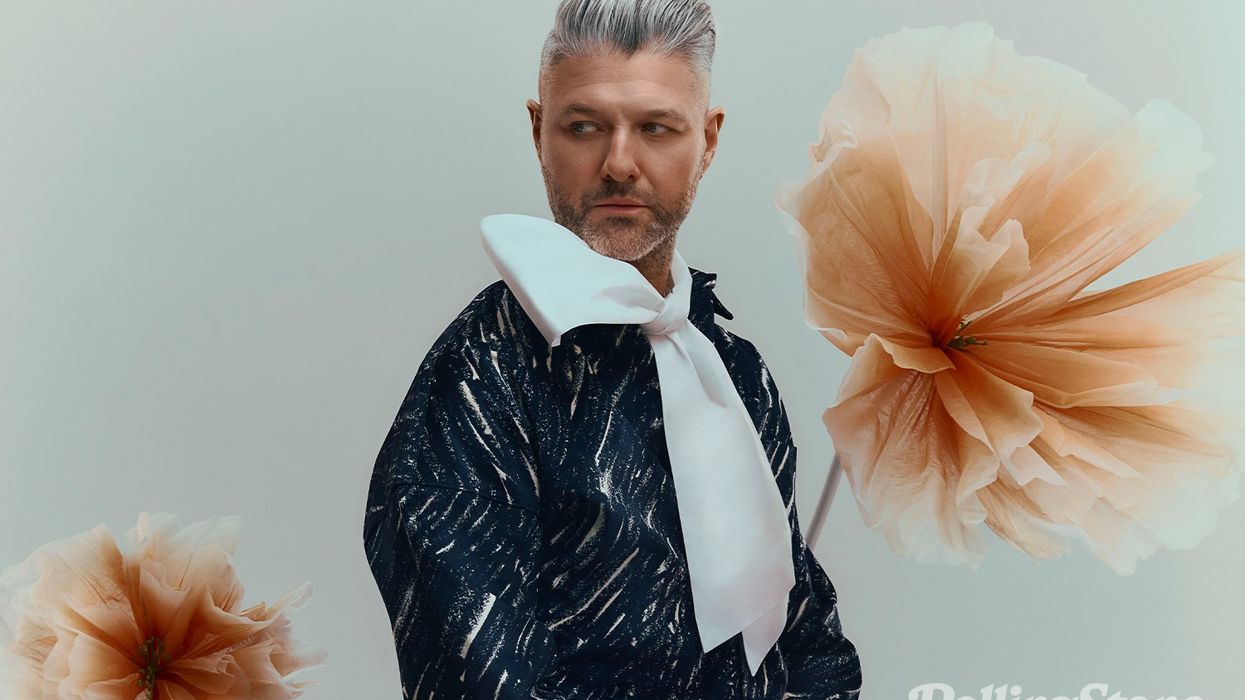
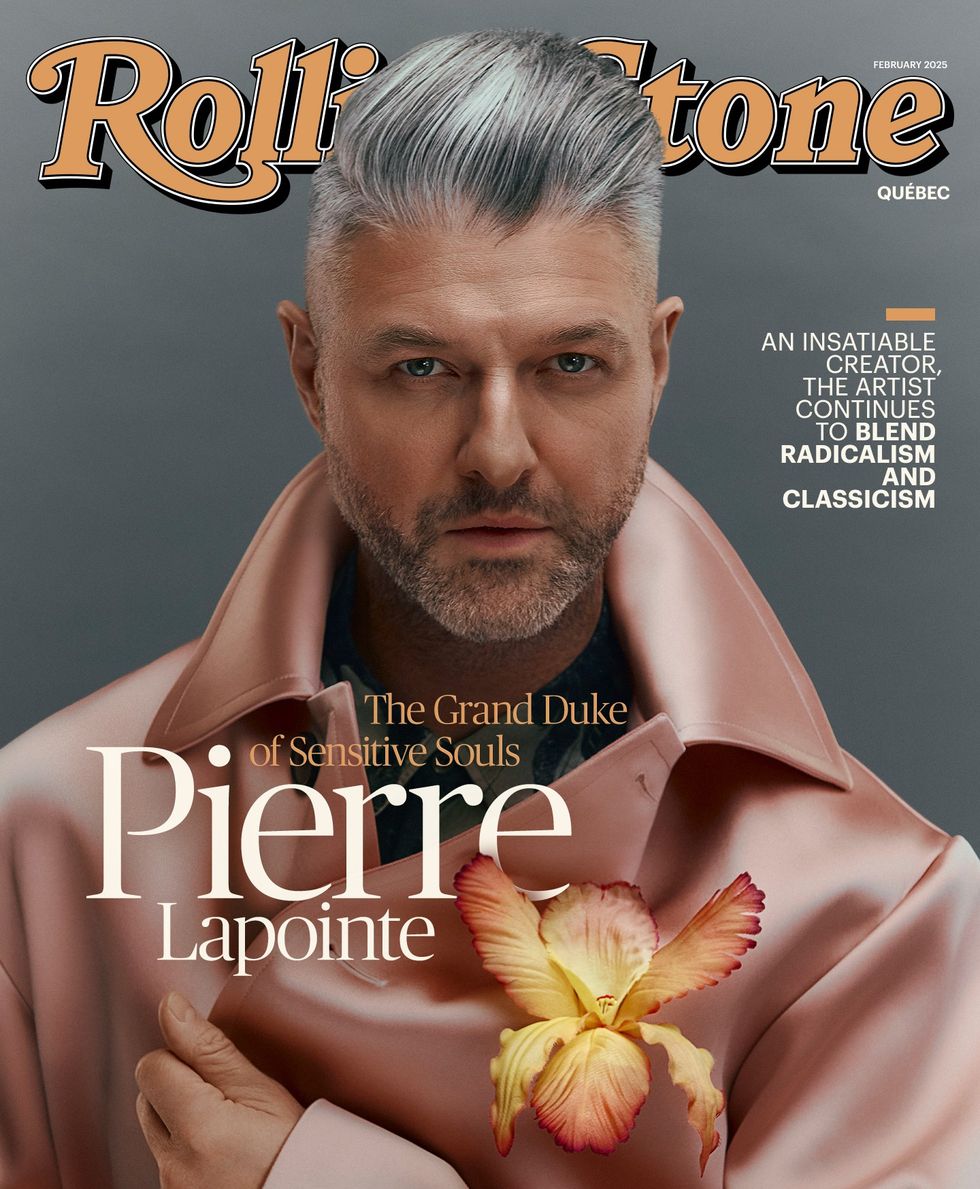 Coat (polyester and wool), shirt (silk), Dries Van Noten, SSENSE.com / Flower (silk), M&S Schmalberg
Coat (polyester and wool), shirt (silk), Dries Van Noten, SSENSE.com / Flower (silk), M&S Schmalberg
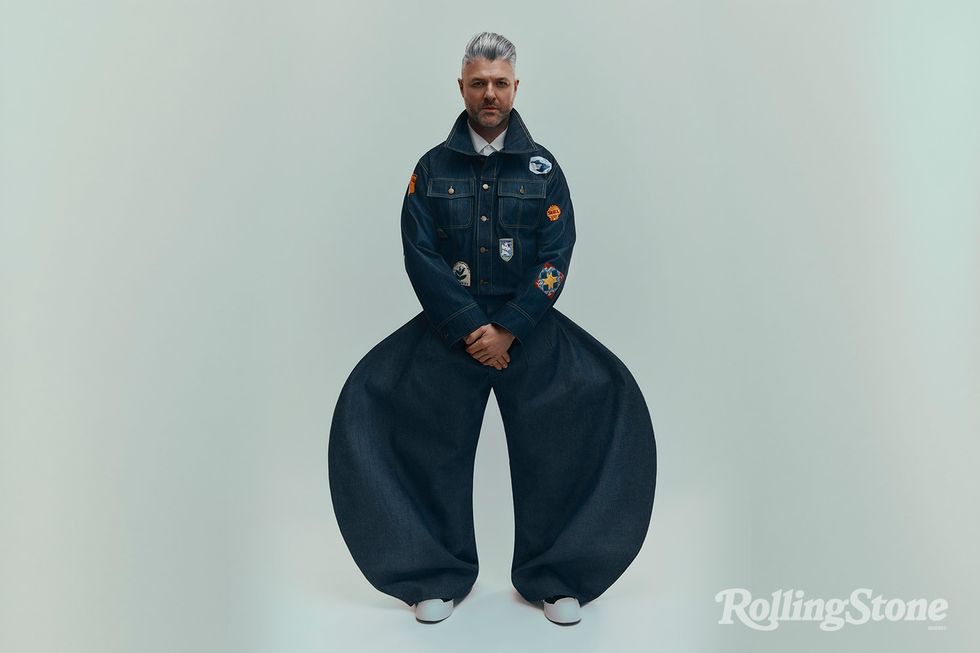 Blouson (denim and hand embroidered patches), WJ Crosson / Shit (polyester), Homme plissé Issey Miyake, Holt Renfrew/Pants from personal collection/ Shoes(canvas), Marni
Blouson (denim and hand embroidered patches), WJ Crosson / Shit (polyester), Homme plissé Issey Miyake, Holt Renfrew/Pants from personal collection/ Shoes(canvas), Marni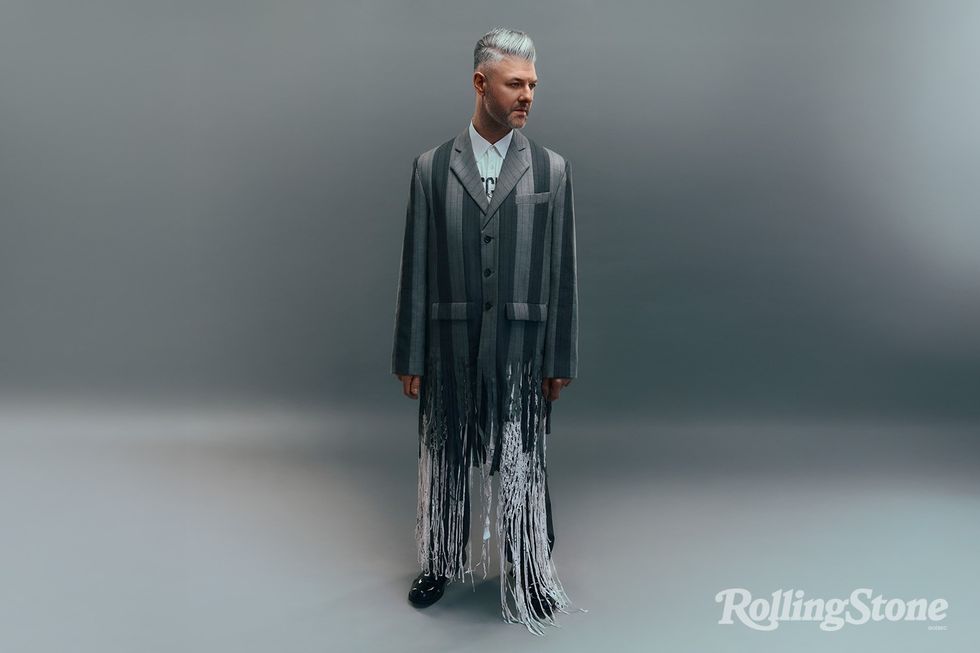 Jacket and pants (virgin wool), shirt (acrylic coated cotton), Moschino / Shoes from Pierre Lapointe's personal collection
Jacket and pants (virgin wool), shirt (acrylic coated cotton), Moschino / Shoes from Pierre Lapointe's personal collection